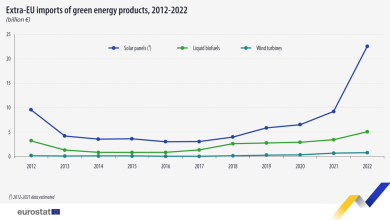New Procedure for Applying the Annual Visa on the Environmental Permit
On 11 June 2020, the Order of the Minister of Environment, Waters and Forests no. 1150/2020 approving the Procedure for applying the annual visa on the environmental permit and the integrated environmental permit (‘Order no. 1150/2020’) was published in the Official Gazette.
The procedure provided under the Order no. 1150/2020 shall become effective as of 11 July 2020.
Background
The legal framework regulating the validity of the environmental permit (‘EP’) and of the environmental integrated permit (‘IPPC’) has suffered many changes during the last two years (some better than others).
Back in 2018, the EP and the IPPC were valid for 5 and, respectively 10 years; said permits had to be renewed at the end of this period irrespective if the operator’s activity changed or not. As such, aiming to reduce the formalities for the operators not changing their activity, the legislator issued a new (simplified) procedure consisting in the issuance of an annual visa. As of the introduction of this procedure, the EP/IPPC was to remain valid for an unlimited period (should such annual visa be obtained).
Said procedure brought numerous advantages, such as: (i) decreasing the tendency to interrupt the activity of the economic operators not holding a valid EP or IPPC (as, in many cases, such permits expired prior to completing the renewal procedure), with obvious negative effects on both the economic results and employment rate and (ii) relieving the competent authorities [i.e. the National Environmental Protection Agency (‘NEPA’) or the county agencies] of bureaucratic burden.
This was reflected in the Emergency Ordinance no. 75/2018 (‘GEO 75/2018’) which introduced for the first time the annual visa concept. The procedure and the conditions of obtaining such annual visa were detailed under the Ministry Order no. 1171/2018 (‘Order 1171/2018’). Order no. 1171/2018 provided, among others, that the operator must carry out its activity under the same conditions considered upon the EP/IPPC issuance in order to obtain the annual visa. The content of the procedure was significantly improved in March 2019, by Order no 324/2019, which brought more clarity on the deadlines to be observed when applying for such annual visa.
Yet, in June 2019, the Constitutional Court issued the famous Decision no. 214/2019 (‘Decision 214/2019’) which declared unconstitutional the provisions of GEO no. 75/2018. As such, the entire procedure for the annual visa was repealed. Back to square one: the environmental permit and the environmental integrated permit were to be issued for a 5 and, respectively, 10 years[1]…
Finally, in November 2019, the legislator issued Law no. 219/2019 amending the Emergency Ordinance no. 195/2005 (‘Law 219/2019’) which re-introduced the annual visa concept. However, the conditions for obtaining the annual visa were still not set under any normative act. As such, the only missing piece (i.e. a new procedure setting the conditions for obtaining the annual visa) came in June 2020: the issuance of the Ministry Order 1150/2020 was not only awaited, but also welcomed.
The new procedure under the recent Ministry Order 1150/2020
The new annual visa procedure holds several relevant provisions and seems to outline a distinct philosophy, as opposed to the previous one. One of the highly appreciated novelties is that the risk for the annual visa procedure to overlap with the revision procedure of the EP/IPPC has been removed.
Yet, for the benefit of the regulatory authorities and the operators, additional clarifications on a series of situations is highly advisable, as briefly presented below.
The applicable deadlines
The procedure clearly stipulates that, if the EP/IPPC was revised, the operator must apply for the annual visa in the next year following the EP/IPPC revision. Thus, while the concern for avoiding the overlapping of the procedures for the annual visa and of the EP/IPPC revision was removed, it is worth mentioning that an EP/IPPC revision is often a highly complex process which may easily extend the procedure into the following year. As such, it is still unclear whether the exemption from applying for the annual visa also covers the year when the EP/IPPC revision is initiated or only the year when the EP/IPPC revision is ended[2].
Another improvement may regard the transition period provided under the new procedure correlated with the minimum prior period (of 60 days before the issuance date – day and month) for applying for the annual visa. As such, one could identify different situations of operators that do not fall under a clear corresponding provision in the new procedure. For example, it looks unclear how an operator holding an EP/IPPC with the issuance date (i.e. day and month) prior to the date of entry into force of the new procedure (i.e. 11 July 2020) should proceed[3]. Not least, the situation of an operator holding an EP/IPPC with the issuance date (i.e. day and month) between 11 July 2020 and 10 September 2020[4] is also uncertain.
One could argue that any operator falling in one of the above-mentioned situations is unable to meet the minimum deadline and, as such, it falls under the below detailed sanction(s). This situation is obviously inequitable and certainly not intended by the legislator.
Sanctions
The legislator seems to have completely changed the perspective over the field of sanctioning the deadline non-compliance. For each day missed by the operator for submitting the application for the annual visa, the environment protection agency (‘EPA’) shall suspend its EP/IPPC for a period equal to the late submission period.
The suspension of the EP/IPPC is one of the most severe sanctions. One could argue that an operator, which is late in submitting its application by one day, is more severely sanctioned than an operator harming the environment through various polluting actions, which are (mainly) sanctioned with a fine.
From a different angle, depending on the specifics of each industry, the measure of suspending the activity (automatically triggered by the suspension of the EP or the IPPC), even for one day, could naturally extend over several days (even weeks) due to technical and safety reasons (specific to certain fields of activity), leading therefore to a de facto extension of the sanction and to substantial losses.
Given the above, a more proportionate regime of sanctions for the non-compliance with the deadlines of the procedure should be considered.
The answer to these uncertainties will be most probably addressed in practice by the EPAs. As the provisions of the Order no. 1150/2020 shall enter into force on 11 July 2020, a (preferable) alternative would consist in the amendment of the procedure before that time.
Conclusions
The advantages of regulating the annual visa are more than obvious, both for the operators and, as well, the EPAs. Despite certain unclear aspects (which one might see rather natural for a new piece of legislation), the new procedure under Order 1150/2020 regulating the annual visa procedure for the activities that do not change over time is more than welcome.
Co-author: Adina Popescu, Junior Associate at Vlasceanu, Ene & Partners
[1] However, the status of certain EPs and IPPCs (those having validity expired prior to the Decision no. 214/2019) suddenly became unclear generating uncertainty among many operators.
[2] For example, if the revision process starts in 2020 but ends in 2021, would the operator be exempted from its obligation to obtain the annual visa both for 2020 and 2021 (or only for 2021, when the revision is completed)?
[3] Note is to be made that such operators could not have duly applied for the annual visa before 11 July 2020 as there was no procedure in place before said date (Decision no 214/2019 repealed the procedure under Order 1171/2018).
[4] As 11 July 2020 falls on a Saturday (the authorities are closed for the public), it seems that only the operators holding an EP/IPPC with the issuance date (i.e. day and month) after 10 September are able to meet the obligation of submitting the application with 60 days before the issuance date.







